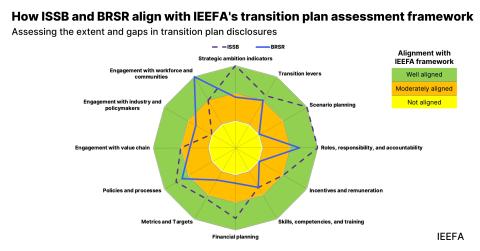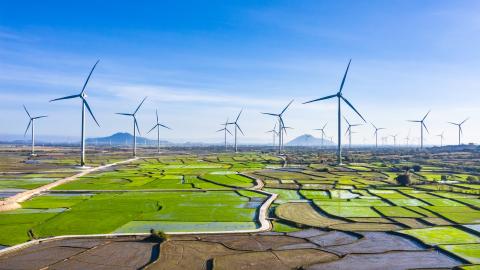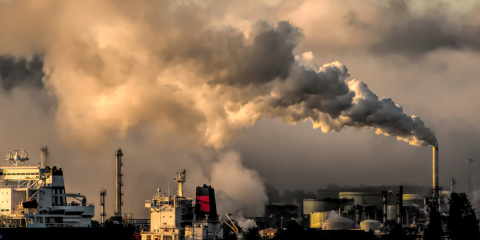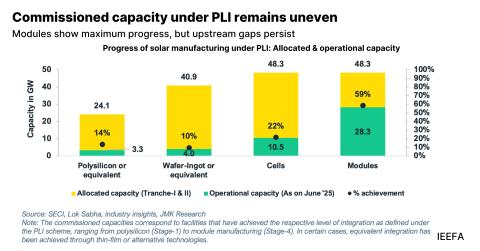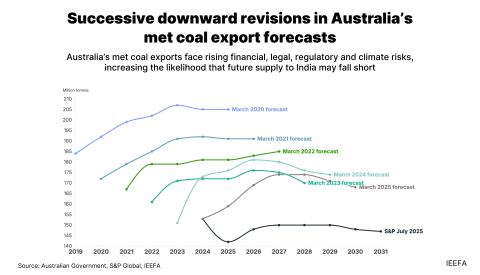Once seen as industry savior, petrochemicals losing financial appeal
Download Full Report
View Press Release

Executive Summary
The oil and gas industry and its petrochemical counterpart generate millions of tons of plastic waste and millions of tons of greenhouse gases (GHGs). The industries are at the crosshairs of international criticism. The future that now confronts the industry is fraught with risk from a short-, medium- and long-term profit squeeze driven by unprecedented, powerful market and political forces. Investors must play a more effective role in moving corporations to a sustainable business model.
International appeals to limit the use of fossil fuels, based on scientific evidence, warn us of consequences if those admonitions are ignored. Markets for the major component commodities are oversupplied and being reshaped by unprecedented competition. The problems have also created burgeoning investment opportunities to transform the economy, yet, as this report demonstrates, most of these companies remain overly dependent on fossil fuels. They are wedded to financial models that possess neither the technological nor business essentials needed to chart a growth-oriented path to a sustainable future. Instead, they are adding more single-use plastics production facilities—the principal source of ocean pollution—despite warnings.
The complex dynamics that affect ethylene, polypropylene and polyethylene markets—the basic raw materials of single use plastics—have broad implications. The growth rates for these products have been robust historically, resulting in substantial quantities of single use plastics produced and deposited into the world’s waterways. The underlying production dynamics and margin spreads have been positive, as plastics producers have a multiplicity of raw product outlets.
What is developing now is a series of structural chokepoints that over time is having the effect of reversing those positive dynamics. The market outlook for virgin plastics is turning negative.
Standard and Poor’s, Fitch and Moody’s have issued various credit warnings. Fossil fuel producers, the linchpin of plastics production, face impending downgrades due to their failure to prepare for market and policy changes. Petrochemical hubs are increasingly viewed as credit negative. Public concern has become a potent regulatory and political risk that echoes the changing policy and market forces challenging the oil, gas and petrochemicals industries’ creditworthiness. The stock market shows that oil and gas majors, as well as some petrochemical producers, have experienced unstable short-term gains linked to underlying vulnerabilities, not market strength. Their financial performance has lagged the market for many years, and they are likely to continue on that path.
This report analyzes nine of the major companies that have a profound impact on how solutions to the problem of plastic pollution can become part of a company’s business model. IEEFA reviewed six integrated oil and gas companies (ExxonMobil, TotalEnergies, Eni, Chevron Phillips Chemical, Repsol, Shell) and three petrochemical companies (LyondellBasell, Westlake, and Dow) regarding the issue of sustainability in the petrochemical and plastics industries, specifically the production, use and disposal of single-use plastics. They are substantial producers and consumers of resins used to make single-use plastics.
IEEFA’s research highlights a critical component of the sustainability equation—the industry’s response to the pollution impacts of plastics, particularly single-use plastics. The following facts about the companies under study indicate they are making major investments that are going in the wrong direction by increasing the production and supply of fossil-based plastics.
The report finds:
- Eight of the nine companies identified in this study are actively sponsoring projects and investments collectively worth more than $70 billion on ethylene, polyethylene and other assets that support the expansion of single-use plastics. The projects enter the market at a time of oversupply, slowing economic growth and rising competition. These long-term investments—choices made by corporate decision makers—run contrary to market forces, environmental/regulatory priorities and climate imperatives.
- ExxonMobil is sponsoring major ethylene, polypropylene and polyethylene facilities in the United States and China. Three investments are estimated at more than $20 billion.
- TotalEnergies’ sustainability plans support a substantial expansion of single-use plastics. Expanding its market share in the United States, its joint venture with BASF is adding a 1-million-ton ethylene cracker in Texas, as well as more polyethylene capacity.
- Eni has embarked on development of chemical recycling initiatives that rely on unproven technical and waste management techniques. It plans to spend upward of $9 billion annually to increase its natural gas holdings, including its recently announced project to expand natural gas production in Australia, a move tied to a plan for a major increase in risky petrochemical production.
- Repsol has been criticized for using green bond proceeds to support a corporate structure overly reliant on fossil fuels.
- Shell invested more than $6 billion in a petrochemical hub (ethylene, polyethylene) in western Pennsylvania that has caused pollution problems, lacks transparency and has opened to a weak market.
- Chevron Phillips Chemical has announced $14.5 billion in investments that expand ethylene and polyethylene capacity in the United States and Middle East.
- LyondellBasell is helping to support a 1.5-million-ton annual polypropylene buildout in South Korea and Thailand.
- Dow Chemical is moving forward with a $9 billion integrated cracker plant in Canada that would produce 1.8 million tons of ethylene and polyethylene every year. The project plans to use natural gas as a feedstock and rely on unproven carbon capture and sequestration (CCS) technology.
Billions of dollars are being deployed on business-as-usual investments that will fail to achieve climate and pollution reduction goals, maintain profitability and encourage investor confidence.








